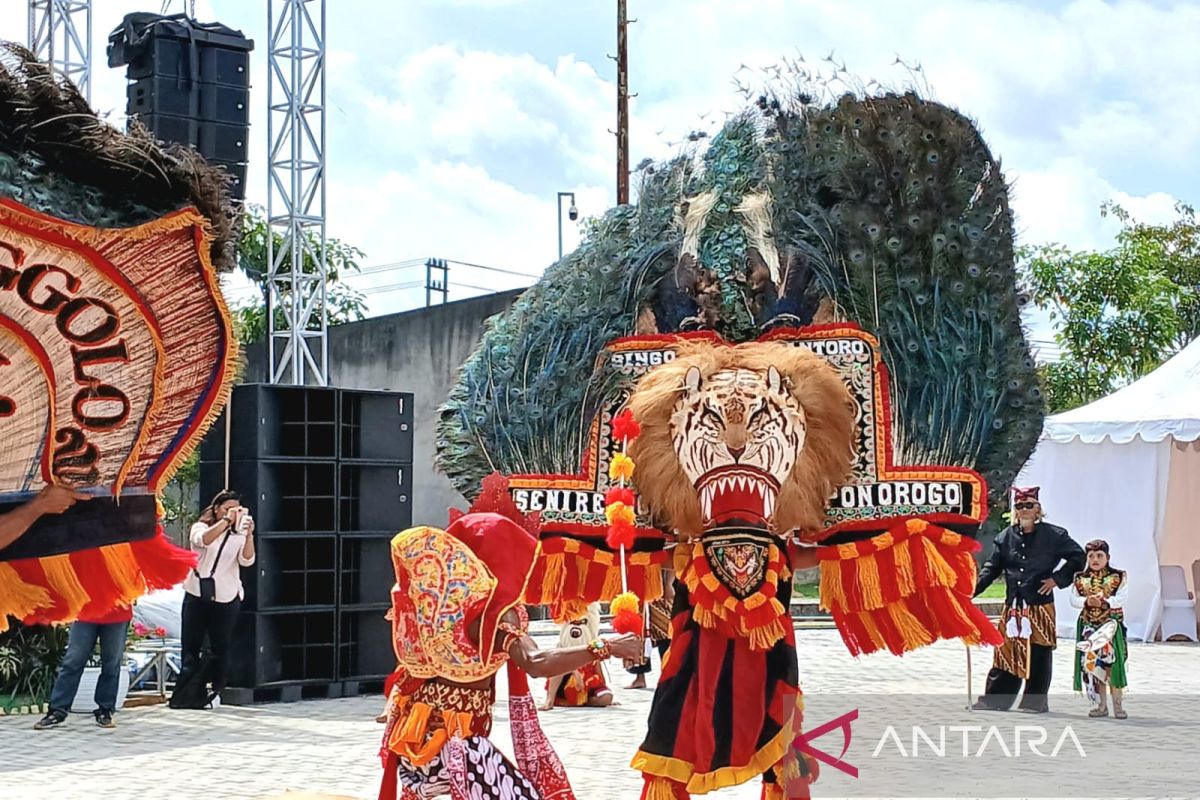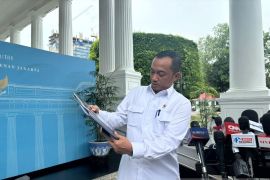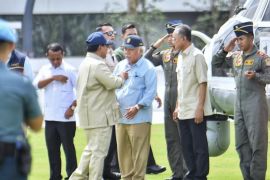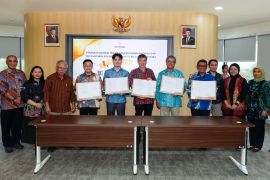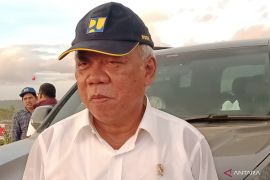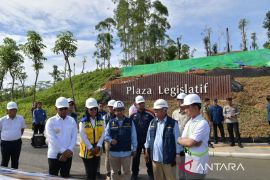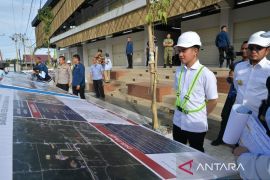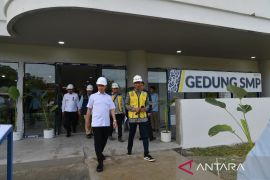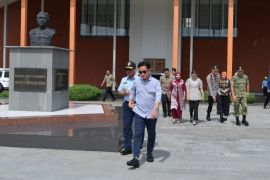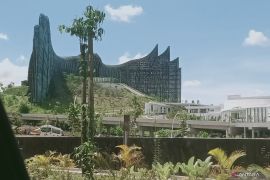Earlier, IKN was home to various main indigenous tribes, namely Paser, Dayak, Kutai, and Balik, whose existence should not be marginalized from infrastructure development. As an area designated as the new urbanization center, character building through the cultural approach at IKN must be improved.
Cultural advancement requires a considerable investment of time. Moreover, human development is necessary for the country’s progress. Culture has also become one of the local wisdom in society, forming a system of values that establishes communal habits and ways of life.
Hence, the Coordinating Ministry for Human Development and Culture has actively involved indigenous communities in cultural development for the past two years through the National Cultural Harmony Festival (FHBN) at North Penajam Paser District on September 5-7, 2024, opened by President Joko Widodo.
At the event, the president said the district would become a melting pot for various cultural interactions. The community must be able to live in harmony in maintaining, preserving, and developing local cultural identities, values, and traditions of the people in East Kalimantan.
The ministry’s Deputy for Coordination of Mental Revolution, Cultural Development, and Sports Achievements, Warsito, also stated that development progress at IKN should be in line with human development through one of the most fundamental aspects, namely education.
Education plays an important role in shaping the culture and character of society. In this year’s FHBN, North Penajam Paser District launched 30 Pancasila Laboratory Schools.
The school will accommodate the aspirations of indigenous people and implement national character values for students. Pancasila Laboratory School is expected to prevent moral degradation in students, such as bullying, intolerance, sexual violence, and other negative behaviors.
The 30 schools will also help schools optimize the understanding of environmental preservation in students, as well as help schools foster an entrepreneurial spirit in students.
Related news: New capital Nusantara to preserve local wisdom, culture: OIKN
Support
Government support for indigenous communities is realized by optimizing existing local cultures from the buffer zones of the region.
The Capital City is present for the community as a manifestation of various cultures in the regions to be developed and disseminated massively to support the improvement of the community's economy and attract more investment.
The government will not bring a new culture to the IKN but rather maintain the community's existing and deeply rooted ones.
The government then outlined five mentalities needed in society.
First, a serving mentality, one of which can be realized through a vocational movement to increase community independence.
Second, an independent mentality, namely to serve the country that has an independent spirit in the economics and socio-culture context and is not easily influenced by foreign cultures while maintaining local strength and wisdom.
Third, a clean attitude is one indicator of the success of a nation's progress. This means, clean from the mentality of corruption and other frauds.
Fourth, the spirit of unity as a pluralistic nation in diversity through a welcoming attitude to accept and welcome newcomers with their differences.
Fifth is orderly behavior and respect for others.
These five movements must always be nurtured to support the progress of Indonesian civilization in order to build the real character of a nation.
Director of Culture, Tourism, and Creative Economy of the Indonesian Capital Authority (OIKN), Muhsin Palinrungi, said his side is currently designing the IKN as a living museum of Nusantara.
The Nusantara living museum will showcase local cultures, such as Paser and Balik, which are indeed the two main tribes existing in the region. Various cultural activities will be carried out to spur the buffer areas of the IKN to become new tourism destinations.
Meanwhile, Deputy Chair of the Paser Customary Institution of North Penajam Paser District, Bahrani, lauded the involvement of the indigenous people at the cultural event.
As a representative of the indigenous people, he expressed his commitment to continue to promote and introduce Paser's culture and other East Kalimantan cultures to the national level, considering that the district has become the main support for the IKN towards a more advanced Indonesian civilization.
Related news: President expects multicultural people to live in harmony in IKN
Vocational education
Efforts to embrace and involve indigenous people in cultural development in North Penajam Paser District are carried out through various methods, including the optimization of vocational education.
Since the region will host multiple cultures along with the development of IKN Nusantara, improvement in the quality of human resources must be built sustainably.
One of the challenges faced by the North Penajam Paser District is the inability of high school and vocational school graduates to pursue higher education, resulting in unemployment. Weak economic capacity is one of the reasons for them to be unable to pursue higher education.
The regional government has carried out several efforts to reduce unemployment, including collaboration with the Regional Public Service Agency (BLUD) Technical Implementation Unit (UPT) of the Solo Technopark Science and Technology Area.
A total of 102 people were sent to Central Java to take part in the training spanning 3.5 months in six priority sectors, namely welding, piping, electricity, mechanics, rigging, and scaffolding.
After completing the training, participants will be deployed to work at the IKN.
Cooperation is also established with the Surabaya Aviation Polytechnic (Poltekbang) to prepare the North Penajam Paser local workforce to work at Nusantara Airport.
In addition, the district government has provided certification to 114 local construction workers for them to easily work in the IKN, by having licenses and competencies.
Cooperation with universities in Central Java is also carried out by sending students to study civil engineering, planology, and medicine.
Currently, the district government prefers vocational education to prepare human resources at IKN while reducing the unemployment rate.
Human development will always be intertwined with culture. At the same time, involving indigenous people and increasing their capacity in terms of education is the key to realizing an advanced IKN that supports the entire community.
Related news: OIKN, Manpower Ministry train locals for IKN jobs
Translator: Lintang Budiyanti P, Resinta Sulistiyandari
Editor: Yuni Arisandy Sinaga
Copyright © ANTARA 2024
